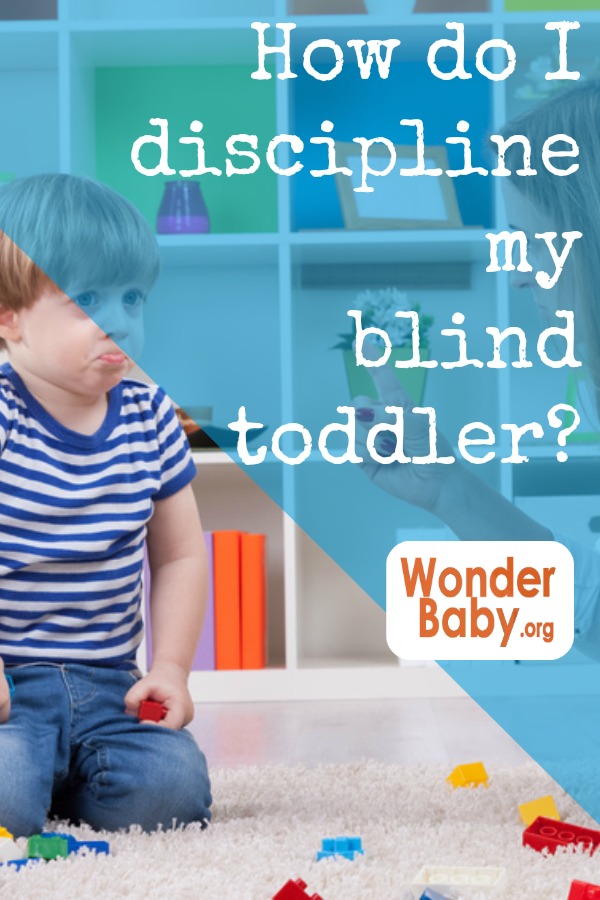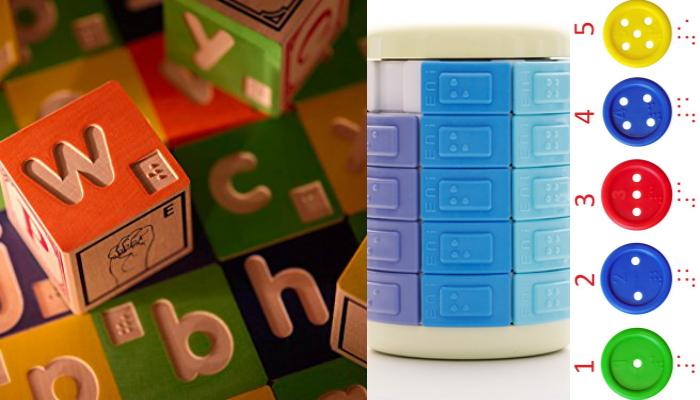How Do I Discipline My Blind Toddler?

Many children who are blind also have other learning delays, including diagnoses of ADHD or autism. With their kids having multiple disabilities parents are often faced with a unique challenge: How do you discipline a disabled child? Or, as some ask, SHOULD you discipline a disabled child?
Many of our kids also have typically developing siblings who do experience consequences for their actions. Of course we don’t want our kids with disabilities to feel as if they can do and act any way they want because of their diagnosis and we also don’t want our typically developing kids to feel like the rules only apply to some kids and not for others. But what is appropriate for a child with special needs?
We posed this question to the WonderBaby.org community and here is what they had to say:
“I currently work with a 5 year old blind child with additional needs in a mainstream school. The child has shown aggressive behaviors towards staff and children with regards to things he doesn’t like. We have been using exaggerated emotions in our voice for positive and negative behaviors. For example, when he has done something really good I use a really excited voice and give motivating rewards when praising him. When he has done something ‘naughty’ I use a very low, firm voice and he is put in ‘time out’ and given the statement ‘That is not good. I am am cross.’ This seems to be working with him as he is reacting correctly to the different voices and the aggressive behaviors aren’t as frequent. We have also arranged regular motivating activities into his daily routine, which he is beginning to remember. We can then use those activities as a sanction for poor behavior. For example, if he has done something ‘naughty’ he will not be going on the piano before break time: ‘You pinched your friend. No piano before break time for children who pinch their friends.’ This seems to be working some of the time as he emotionally reacts correctly to this sanction. He is very happy and content in school and using these methods has really helped with enabling his social interaction, communication and education.”
“We send our son to his room or turn off his music, but he can be a little delicate and sometimes a stern voice is enough. Sometimes a stern voice is too much and causes a meltdown but we have to start somewhere.”
“Honestly, I wouldn’t say we discipline our 6 year old son (who is blind) any differently than we do, or did, or 9 year old daughter who is sighted. By that I mean we try to keep discipline age appropriate. He loses privileges, gets ‘time-outs’, sometimes receives extra chores… it really depends on the situation. I think as long as you keep the punishments age or even developmentally appropriate for your child, you’re doing the right thing.”
“With both our kids (one sighted, one blind) we used poker chips at 3 yrs. Start each day with three. You can take them away for major tantrums, hitting, whatever… at the end of the day if they still have one left they get a special treat (playtime with mama, a small cookie or whatever motivates your child).”
Need more help?
Check out these resources:
- 6 Strategies for Addressing Self-Injurious Behaviors
- Behavioral Issues in Children with Visual Impairments and Blindness: A Guide for Parents
- Positive Behavior Supports

Related Posts

Eye Conditions and Syndromes, Visual Impairment
Neuralink Announces Plans to Restore Sight to the Blind with Brain Chip
Elon Musk’s company Neuralink has announced plans to begin human trials of its new “Blindsight” brain chip by the end of 2025.

Visual Impairment
The Gift of Understanding: How a Young Child Helps His Blind Father Navigate Life
When a parent is blind, it’s natural for people to wonder how their sighted child will adapt. Will they struggle to understand their parent’s needs? Will they feel burdened by...

Braille and Literacy, Toys, Visual Impairment
24 Braille Toys for Kids Who are Blind
Everything from alphabet blocks to raised line coloring pages and activity books to puzzles to card and board games... and so much more! And it's all in braille ready for...